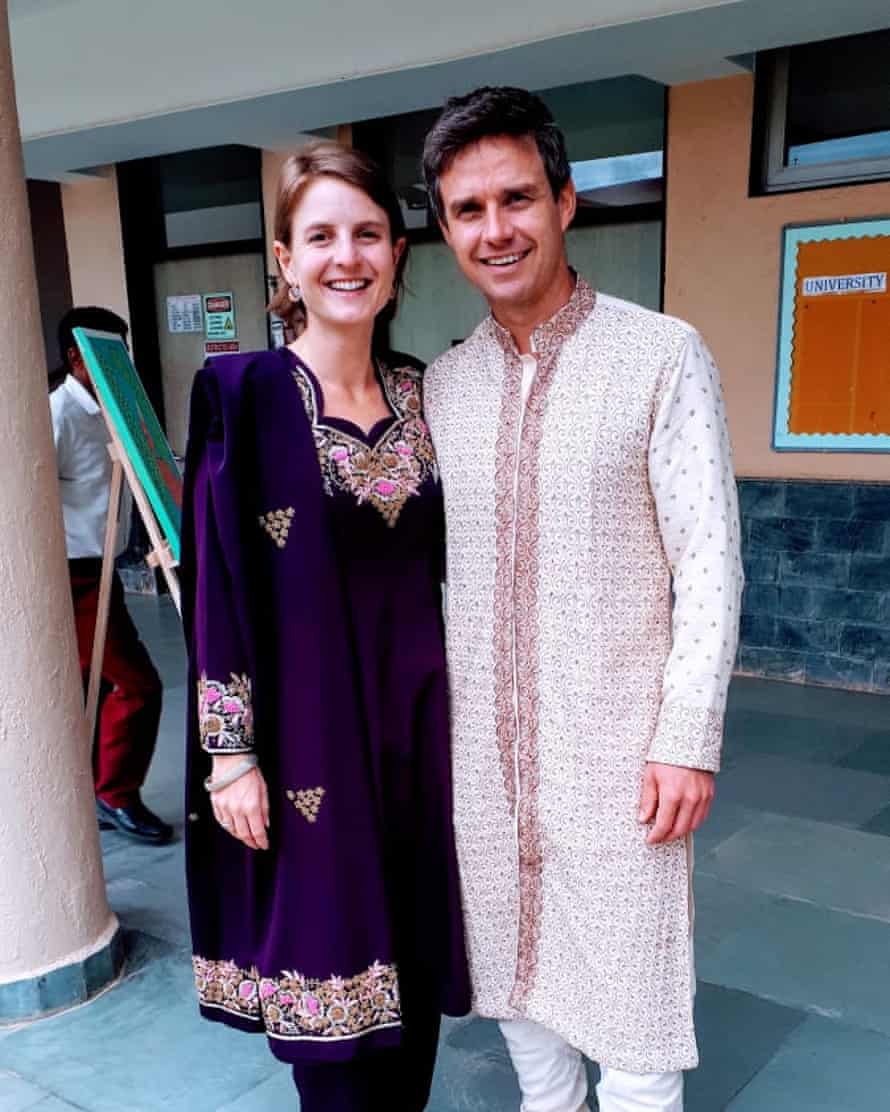In Bangalore, a city besieged by India’s disastrous second wave of coronavirus, Pippa Baxter and her young family remained stoic.
From their empty house, living out of bags packed in anticipation, they could see a way out.
They would be on a repatriation flight back home to Australia in little over a week, leaving a nation where crematoriums and burial grounds are being overwhelmed by the dead.
It would mean an end to Baxter’s constant anxiety for her two daughters, six-year-old Kate and four-year-old Emma, who has a condition that leaves her vulnerable to respiratory illnesses.
But, about 10am on Friday, Baxter’s phone rang.
An official with the Department of Foreign Affairs and Trade had bad news.
The flight was cancelled and nothing else would be available until late June.
“There’s only so much we can take,” Baxter told the Guardian, just minutes after receiving Dfat’s call.
The department was acting on new restrictions, announced by the prime minister, Scott Morrison, a day earlier, that cut direct flights from India by almost one-third to ameliorate the risk from the country’s second wave, which has smashed records for daily transmissions and caused mass death.
Baxter and her husband, Chad, teachers in India for the past two years, have watched the situation deteriorate quickly from their suburb of Rajanukunte, in the northern outskirts of Bangalore.
“There’s Covid everywhere. We’ve just holed up in our house, we have been isolating, and we continue to isolate … but it is literally everywhere,” she says.
“Shops are shut. You can get food deliveries but you’re obviously aware of getting too many deliveries, because the likelihood of that person having Covid is too high.
“We’re just trying to stock up. It’s like being in a war zone.”
Bibhas Dutt was one Australian who was lucky enough to escape India before the new restrictions.
Dutt returned to Delhi in 2019, before Covid, to attend marriages in his family and planned to live there.
But money became tight during the second wave and he accessed superannuation early to get him through.
He spent $5,500 on a flight back to Sydney.
“I was feeling so lucky when I was on that flight that flew off from Delhi,” he tells the Guardian from quarantine. “I was feeling that I was in that movie, 2012, where everything was burning and I was on that flight.”
The chef is preparing to start his life in Australia all over again, finding a new job and home.
The solution is not to shut off flights to people like him who are trying to escape, he says. Facilities like Howard Springs, which he praises as “perfect”, should be expanded and used to reduce the risk of any quarantine outbreaks.
“At the moment, it is out of control in India,” he says. “I think the government should not stop or reduce flights, but make a plan to send at least two flights to India or whatever so they can bring them in a constant manner.”
Even those who are offered spots on repatriation flights are not safe.
The flights are only leaving from Delhi and Chennai, both epicentres of the second wave. That leaves those in other regions facing a risky journey to catch the flight.

“To get to Delhi we have to take a domestic flight and go and get tested for Covid at one of the Qantas testing facilities,” Baxter says. “Obviously we’ll need to take a taxi to get to the testing centre, and stay overnight so we can catch the flight.”
“So we’re going to one of the epicentres of the virus to try and leave, and then, if we’re unlucky enough to catch Covid on this treacherous journey, we won’t be allowed to take our repatriation flight back to Australia.”
The longer the second wave rages on, the harder it gets.
Other nations have either considered or implemented bans, restrictions or travel cautions for India.
The UK last week added India to its “red list” of countries, banning travel for non-UK and non-Irish citizens to the UK from India.
Hong Kong, Pakistan and New Zealand have also enacted temporary bans on travellers from India.
There is also some agitation for a full suspension of travel in Australia, aired chiefly by the Western Australian premier, Mark McGowan. His state is dealing with a quarantine outbreak linked to returned travellers from India.
A similar quarantine outbreak has been witnessed in Howard Springs, but the Northern Territory health minister, Natasha Fyles, says her government has a “humanitarian responsibility” to repatriate vulnerable Australians.
For Baxter, there is little option now but to wait.
“There is literally no option available except for rowing a boat back to Australia, on my own.”
This content first appear on the guardian
